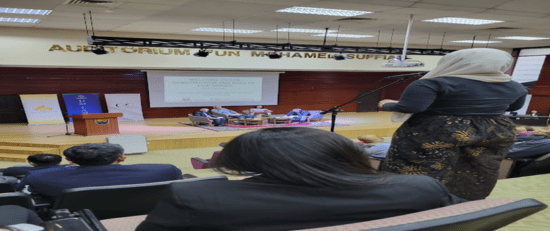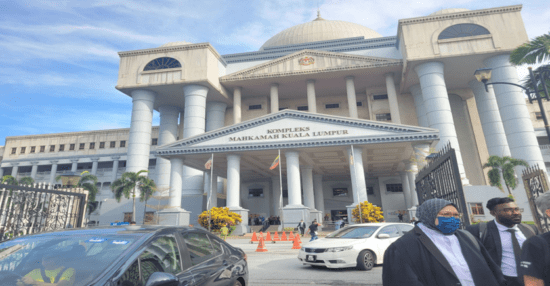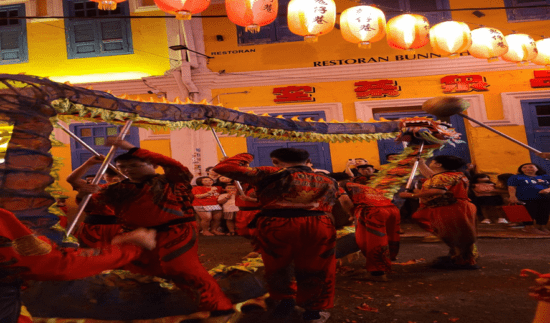Written by Pei Yun Su, Intern at MCCHR
My internship at MCCHR was a turning point in my academic process because it allowed me to apply what I had learned as a student more effectively. In the beginning, I was quite sceptical about whether I was capable enough to overcome the difficulties since this was my first time working in a law-based non-government organisation (NGO) without a law background. Aside from that, this internship was a crucial part of my master’s diploma, and all students in the master’s program are required to have direct contact with NGO activities. I felt a sense of responsibility to fulfil a mission assigned by the school.

Embracing Challenges and Growth in Internship
I attended a lecture on the Federal Constitution of Malaysia at the University of Malaya, and apprehension overwhelmed me. One of the difficulties I faced was the complexity of the legal framework, which made me question whether my limited knowledge of Malaysian laws could be of any help.
My supervisor and I had weekly sessions on assignment implementation at the beginning of the internship, and that created additional anxiety. However, I find the suggestions and feedback overwhelmingly useful after several sessions. We were given the Terms Of Reference (TOR) assigned projects, such as organising events and collaborative work with others. We also wrote articles and made Information, Education and Communication (IEC) material, again testing my skills.

Lecture on constitutional law at the University of Malaya

Judicial review of the ban on Mentega Terbang
Amidst all these challenges, growth often pops up at the most unexpected moments. Overcoming my challenges, every work became adamant for personal and professional growth. Through the process, I realised the beauty of the Malay language and Malaysia’s political concept from my supervisors and colleagues. I realised that the very absence of obstacles would be the same as standing still and avoiding any possibility of growth. Even though the given task is difficult, accepting the challenge and developing personal skills are significant for every human rights advocate.
Additionally, this internship allowed me to gain an understanding of Malaysian culture from the very start. The fact of experiencing a cultural shock for the first time helped me greatly to eventually adapt to an environment that was so different from both Europe and my home country of Taiwan.

Dragon dancing near Chinatown during the Strategic Litigation Workshop
During my internship at MCCHR, I was equally lucky to participate in an assorted set of activities and gain new insights from each. The highlight of my experience was my role as a rapporteur for a litigation workshop, which turned out to be a challenging yet rewarding assignment that I enjoyed. The panellists were diverse, each coming from a different sector, and the sessions were conducted in a mixture of Malay and English.
During the workshop, I refined my note-taking and summarising skills and my ability to employ multitool techniques while navigating linguistic nuances.
I was tasked with organising two events: one focusing on the issue of hate speech and the other addressing the death penalty in Malaysia and Singapore.
Organising such events was a completely new experience for me, and it also followed a stressful and strict time frame. Yet, the process turned out to be extremely exciting and rewarding. The event involved writing proposals, inviting guests, structuring the event process, and rehearsing. Most importantly, the speaker for the hate speech event, Ms Nalini, provided practical suggestions for countering hate speech.
After the event, I felt a strong sense of accomplishment. Through this process, I acquired new methods and advanced skills, which are highly appreciated in the NGO sphere.
Video making is one of the more difficult tasks, as you can not rely on professional equipment. However, it is also the most creative way to implement numerous ideas, and the main task is self-organisation. Specifically, this task relies on three main factors: creativity, imagination, and problem-solving ability.
The thing for me that I find remarkable is the process of publishing a paper on a TOR assignment. I have opted to look deep into the wheat-and-chaff relationships between hate speech and hate crimes, which is the very issue that has always infatuated me.
Immersion in reading and research on different platforms enabled me to acquire new information and perspectives on the topic that surpassed my former knowledge and beliefs concerning this issue. Through reading and research, I’ve discovered that Malaysia’s presence is truly unique. I’ve come to believe that its history possesses a dramatic quality more commonly found in fiction or even prophecy.
Generally speaking, I feel comfortable with MCCHR’s welcoming and accommodating spirit, which is clearly represented by a strong team spirit within the group, including my supervisor and fellow interns.
